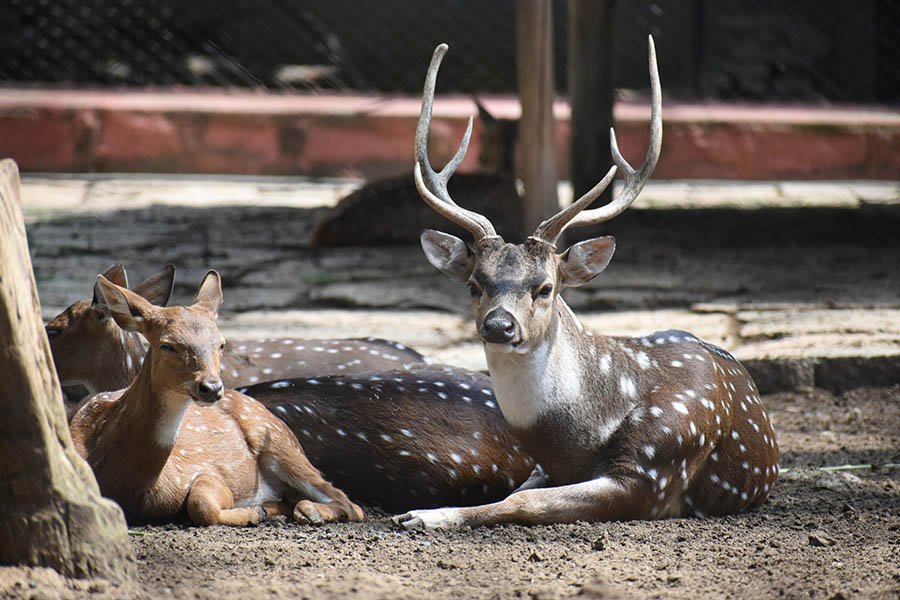In recent years, there has been a rise in the demand for venison meat, antlers, hides, and other goods derived from deer, which has led to an increase in the popularity of deer farming. The behavior has gained widespread acceptance over the past few years, particularly in nations such as New Zealand, the United States of America, and Canada. If you’re considering starting your deer farm but need help figuring out where to begin, this article will provide all the information you require to get your farm off the ground and running smoothly.
Types Of Deer Farming
Here are a few types of deer farming ideas that you can choose from:
Production of Venison
It entails farming deer for their meat, which is in high demand due to the low fat and high quantities of protein it contains. Venison is produced by farming deer.
Antler Production
Deer antlers are put to use for a variety of applications, including in traditional medicine, as well as in the decorating and supplement industries. An example is farming which focuses on growing deer just for their antlers, which are then harvested and sold.
Trophy Hunting
Some deer farmers give trophy hunting services to hunters who want to hunt and kill deer for their enjoyment. Trophy hunting is also known as buck hunting. In exchange for permission to hunt deer on the land owned by the deer farmer, the hunters must pay a fee.
Live Sales
This refers to selling live deer to third-party buyers such as other farmers, game reserves, or individuals interested in beginning their own deer farms.
Research in Several Fields
Some deer farms are actively involved in various fields of scientific study, including research on deer behavior, genetics, and physiology. The deer are kept for research and are not slaughtered for their meat or utilized in any other way.
The Basics Of Starting A Deer Farm
Do Market Research
Before beginning the operation of a deer farm, it is vital to conduct market research to determine the demand for venison, antlers, and other items derived from deer. You should also conduct a study about the rules and regulations that govern the farming of deer in your region.
Choose A Location
Deer farms need a lot of areas, and they also need access to clean water and plenty of food. You should select a place that provides access to sufficient land to accommodate the quantity of deer that you intend to breed.
Choose A Breed
Several kinds of deer can be farmed, including whitetail deer, red deer, and fallow deer, so you must decide which one you want to farm. Choose a breed that is well-suited to the environment where you live and has a high demand in the market.
Construct Facilities
To care for deer, you must construct amenities such as fencing, shelters, Deer feeder set ups and watering systems, and facilities for handling the animals. These amenities have to be fashioned in such a way as to guarantee the health and well-being of deer.
Managing A Deer Farm
When you manage a deer farm, you are responsible for many chores and obligations, all designed to maintain the health and well-being of your deer and the success of your company. These are some basic tips for operating a deer farm:
Checkups
It is essential to check up on the health of deer regularly to ensure that they are free from sickness and any other health problems. Collaborate with a veterinarian to devise a strategy for managing your pet’s health and set up a schedule for routine examinations and immunizations.
Nutrition
It is critical to deer’s health and growth that you provide them with food that is well-balanced and rich in various nutrients. Develop a feeding strategy for your deer in collaboration with a deer nutritionist so that you can cater to their dietary requirements.
Management Of Breeding
A good breeding program is necessary to operate a deer farm. Collaborate with a licensed veterinarian to devise a breeding regimen for your deer herd to assure healthy animal offspring and genetic variety.
Environmental Management
This involves ensuring their living quarters are kept tidy and comfortable, giving them plenty of room to wander and graze, and shielding them from harsh weather when necessary.
Handling And Transportation
Your employees should be trained in safe and efficient handling practices. You should ensure your vehicles are well-maintained and contain all necessary safety equipment.
Marketing And Sales
It is crucial to the success of your deer farm that you have a marketing and sales strategy that is both effective and efficient. Determine your ideal customers and devise a strategy for promoting your goods and services that would appeal to them.
Conclusion
In conclusion, the initial investment needed to launch a deer farm is greatly based on the dimensions of the business, its geographic location, and the infrastructure needs it will require. Despite this, a small-scale deer farm can be established with relatively little financial outlay. Although farming deer can be a lucrative and fulfilling endeavor, it requires proper planning and management to succeed. You can start and run a successful deer farm if you adhere to the recommendations and recommendations for best practices in this article.
















